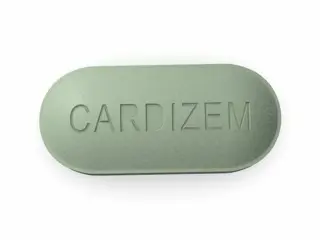| Package | Dosage | Price | Price per Dose | |
|---|---|---|---|---|
| Dosage: 30mg | ||||
| 360 pill | 30mg | NZD547.84 | NZD1.52 | |
| 270 pill | 30mg | NZD431.22 | NZD1.60 | |
| 180 pill | 30mg | NZD306.45 | NZD1.71 | |
| 120 pill | 30mg | NZD227.80 | NZD1.90 | |
| 90 pill | 30mg | NZD184.40 | NZD2.03 | |
| 60 pill | 30mg | NZD132.87 | NZD2.20 | |
| 30 pill | 30mg | NZD70.49 | NZD2.36 | |
| Dosage: 60mg | ||||
| 360 pill | 60mg | NZD751.26 | NZD2.09 | |
| 270 pill | 60mg | NZD572.25 | NZD2.12 | |
| 180 pill | 60mg | NZD385.11 | NZD2.14 | |
| 120 pill | 60mg | NZD263.06 | NZD2.20 | |
| 90 pill | 60mg | NZD208.81 | NZD2.31 | |
| 60 pill | 60mg | NZD143.72 | NZD2.41 | |
| 30 pill | 60mg | NZD78.63 | NZD2.58 | |
| Dosage: 90mg | ||||
| 360 pill | 90mg | NZD1,111.98 | NZD3.09 | |
| 180 pill | 90mg | NZD580.39 | NZD3.23 | |
| 120 pill | 90mg | NZD393.24 | NZD3.28 | |
| 90 pill | 90mg | NZD309.17 | NZD3.44 | |
| 60 pill | 90mg | NZD216.95 | NZD3.61 | |
| 30 pill | 90mg | NZD116.60 | NZD3.88 | |
| Dosage: 120mg | ||||
| 360 pill | 120mg | NZD1,231.32 | NZD3.42 | |
| 270 pill | 120mg | NZD943.82 | NZD3.50 | |
| 180 pill | 120mg | NZD645.48 | NZD3.58 | |
| 120 pill | 120mg | NZD450.20 | NZD3.74 | |
| 90 pill | 120mg | NZD355.27 | NZD3.93 | |
| 60 pill | 120mg | NZD252.21 | NZD4.20 | |
| 30 pill | 120mg | NZD157.28 | NZD5.23 | |
| Dosage: 180mg | ||||
| 270 pill | 180mg | NZD1,347.95 | NZD4.99 | |
| 180 pill | 180mg | NZD922.13 | NZD5.13 | |
| 120 pill | 180mg | NZD621.07 | NZD5.18 | |
| 90 pill | 180mg | NZD490.88 | NZD5.45 | |
| 60 pill | 180mg | NZD347.14 | NZD5.80 | |
| 30 pill | 180mg | NZD189.83 | NZD6.35 | |

Diltiazem Description
Introduction to Diltiazem
Diltiazem is a medication commonly used to manage various cardiovascular conditions. It belongs to a class of drugs known as calcium channel blockers. These medications work by relaxing the muscles of the heart and blood vessels, which helps to lower blood pressure and improve blood flow. Diltiazem is often prescribed for patients suffering from hypertension, angina, and certain heart rhythm disorders. Its effectiveness has made it a preferred choice for many healthcare providers around the world.
How Diltiazem Works
The primary mechanism of Diltiazem involves inhibiting calcium entry into the cardiac and smooth muscle cells. By doing so, it reduces the force of heart contractions and dilates the coronary and peripheral arteries. This dual action results in decreased cardiac workload and enhanced oxygen supply to the heart muscle. As a result, patients experience relief from chest pain and a reduction in blood pressure levels. The medication's ability to target specific areas within the cardiovascular system makes it a versatile and potent agent for managing heart-related conditions.
Administration and Dosage
Diltiazem is available in various formulations, including extended-release tablets, capsules, and injectables. The dosage prescribed depends on the patient's condition, age, and response to treatment. It is crucial to follow the healthcare provider's instructions carefully. Typically, the medication is taken orally once or twice daily, with or without food. Consistency in timing and dosage is vital for optimal results. Patients should not alter their dose without consulting a medical professional, as improper use can lead to adverse effects or reduced effectiveness.
Potential Benefits of Diltiazem
Patients taking Diltiazem often report significant benefits. It effectively lowers high blood pressure, reducing the risk of stroke, kidney problems, and other cardiovascular issues. The medication also helps prevent and relieve angina attacks, improving quality of life for those with chest pain. Moreover, Diltiazem can be used to control certain irregular heartbeats, such as atrial fibrillation, thereby stabilizing heart rhythm and reducing discomfort. Many users find that the medication provides steady symptom control when used as directed.
Possible Side Effects and Precautions
Like all medications, Diltiazem may cause side effects in some individuals. Commonly reported issues include dizziness, flushing, headache, and swelling of the ankles or feet. Some patients may experience fatigue or gastrointestinal discomfort, such as nausea or upset stomach. More serious but less common side effects include slow heart rate, low blood pressure, or allergic reactions. It is important to inform your healthcare provider of any unusual symptoms or pre-existing health conditions before starting treatment.
Interactions and Contraindications
Diltiazem can interact with other medications, including certain beta-blockers, other antihypertensives, or drugs that affect heart rhythm. Combining these can lead to excessive lowering of blood pressure or heart rate. Patients with certain health conditions—such as severe heart failure, heart block, or hypotension—should avoid using Diltiazem unless explicitly advised by a healthcare professional. Always disclose all current medications and health issues to your doctor to prevent adverse interactions.
Conclusion
Overall, Diltiazem remains a reliable and effective medication for managing high blood pressure, angina, and arrhythmias. Its ability to improve blood flow and reduce cardiac workload offers significant health benefits. However, proper use, awareness of potential side effects, and regular medical supervision are essential to maximize its benefits and minimize risks. Patients should adhere strictly to prescribed dosages and report any unusual symptoms promptly. When used correctly, Diltiazem can contribute to better cardiovascular health and enhanced quality of life.
